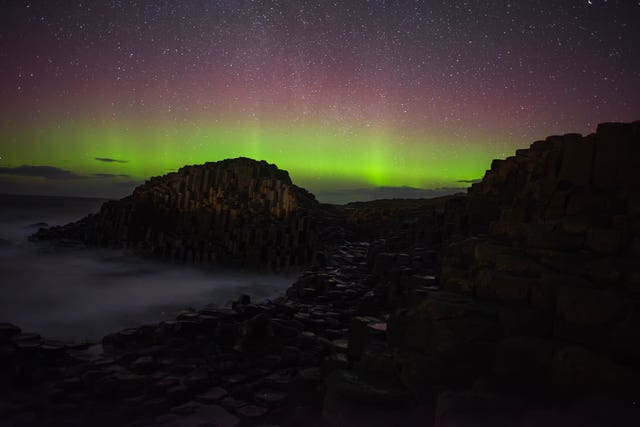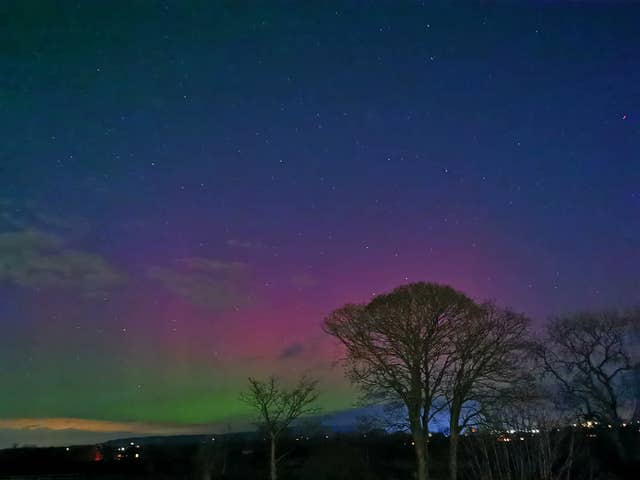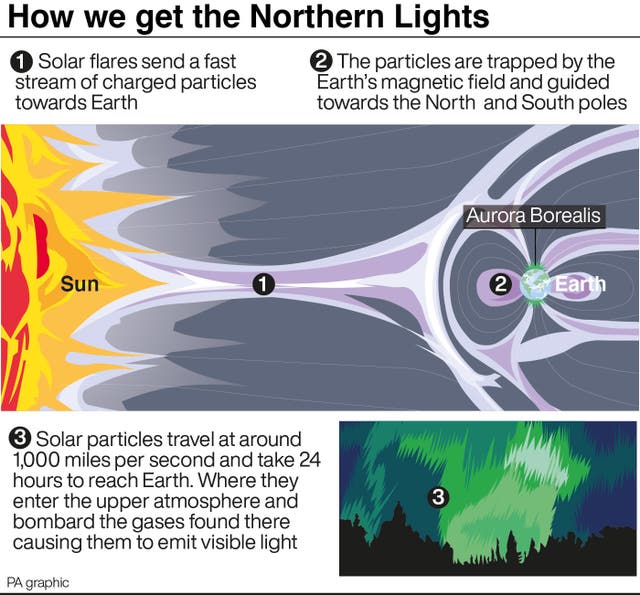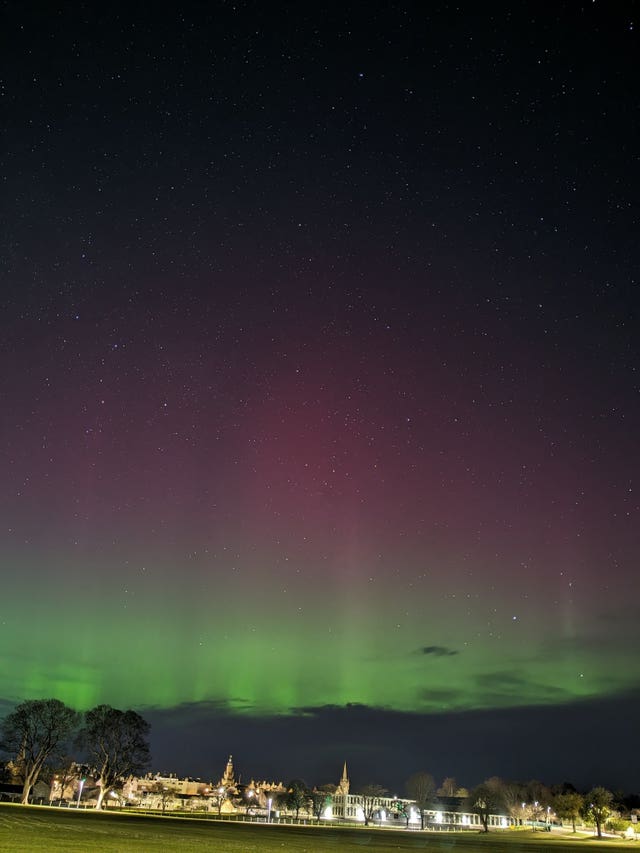Areas from Cornwall to Scotland enjoy ‘rare’ Northern Lights display
The natural light display is caused by charged particles from the Sun interacting with Earth’s magnetic field.

The Northern Lights have lit up the night skies across the UK, with hues of green and purple dancing across the skies as far south as Cornwall.
People also reported seeing the display, called the aurora borealis, on Sunday night across Scotland, Merseyside and Wales.
According to the Met Office, the northern lights are usually best witnessed in Scotland, North England, North Wales and Northern Ireland.

The natural light display is caused by charged particles from the Sun interacting with Earth’s magnetic field.
The colour display depends in part on what molecules the charged particles interact with.

Dr Minjae Kim, research fellow, Department of Physics, University of Warwick, said: “During periods of heightened geomagnetic activity, the auroral ovals expand, allowing for sightings further south in the UK.
“While auroras are more commonly observed in northern regions like Scotland, seeing them in other parts of the UK, as seen last night in southern UK, is exceptionally rare.”

Clear, cloud-free skies in dark locations with minimal light pollution, facing the northern horizon offer the best conditions for seeing the display.
Dr Kim said thar some of the best places for aurora viewing include: Brecon Beacons National Park, an international dark sky reserve in Wales; Exmoor National Park, an international dark sky reserve in England; Galloway Forest Park, an international dark sky park in Scotland; and Kerry international dark sky reserve in Ireland.
The prime viewing times are during the darkest hours usually from 11pm to midnight, but the lights are typically visible between 9pm and 2am.

Dr Kim said: “Geomagnetic activity is forecasted to remain relatively quiet for the remainder of this period.
“As a result, it might be challenging to observe the aurora.
“However, tonight (March 4-5) appears to be the most promising night for aurora viewing, albeit still not highly active.”





